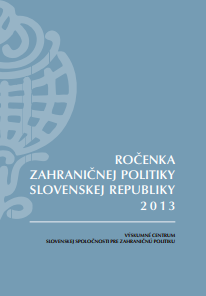
We kindly inform you that, as long as the subject affiliation of our 300.000+ articles is in progress, you might get unsufficient or no results on your third level or second level search. In this case, please broaden your search criteria.

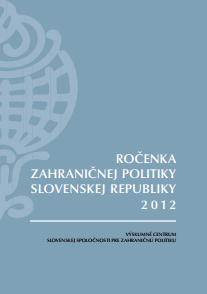
Rok 2012 sa z pohľadu slovenskej energetiky niesol v duchu nasledovania európskych trendov. Do slovenskej legislatívy boli prijaté predovšetkým ustanovenia 3. liberalizačného (energetického) balíka a vo všeobecnosti možno konštatovať, že najmä trh s elektrinou a plynom sa stal o čosi integrálnejšou súčasťou formujúceho sa jednotného európskeho trhu. Okrem toho je zaujímavý i pohľad na sektor energetiky na národnej úrovni. Pozrime sa teda samostatne na vybrané čiastkové témy.
More...
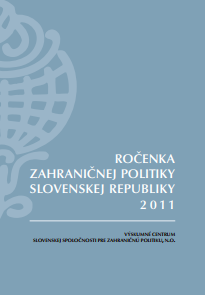
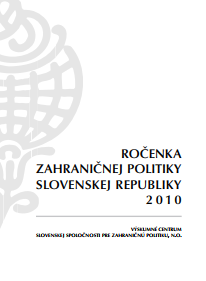
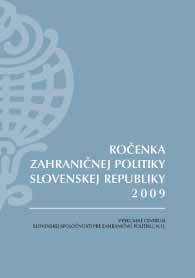
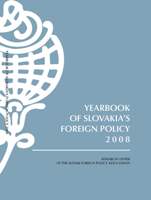
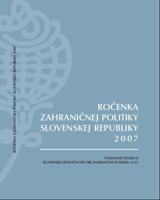


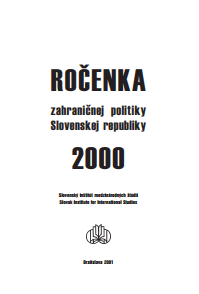
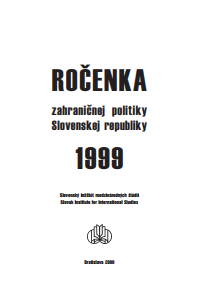
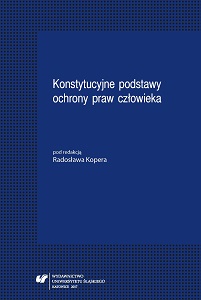
The following article aims to present the overview of the contemporary philosophical discourse regarding human rights. In the first part of the text, the author presents three kinds of arguments used by the opponents of the idea of human rights. Those arguments, in turn, stem from the supposed universality ascribed to human rights. Thus, in the second part of the article, the author analyzes the cultural critique of human rights. The discussion ultimately leads to the conclusion that narrowly-defined cultural relativism does not constitute a sufficient reason for the rejection of human rights, particularly when one accounts for the fact that those sentiments are often motivated politically in countries whose governments reject the standards of democracy.
More...
The right to a fair trial is guaranteed by Article 45 of the Constitution of the Republic of Poland, as part of the regulations concerning the freedoms, rights and duties of the citizen. The regulation is twofold in nature and has been subject to constant changes. The placement of the discussed regulation in Chapter II of the Constitution gives it the rank of a fundamental right. The functioning of the contemporarily instituted mechanisms which guarantee the access to the right to a fair trial remains predicated to a certain extent on the experiences acquired in the process of the changes in law and society. These changes have certainly exerted a fair amount of influence on the functioning of the mechanisms granting the right to a fair trial.
More...
According to Article 63 of the Constitution of the Republic of Poland, everyone has the right to submit petitions, motions and complaints to public authorities and nongovernmental organizations with regard to the assigned tasks pertaining to public administration, in the interest of the public, the petitioner or another person with their permission. The procedure of examining petitions, motions and complaints is delineated in Chapter VIII of the Code of Administrative Procedure and the Act of July 11, 2014 on Petitions. The aforementioned Act on Petitions entered into force on September 6, 2015, twelve months after its publication, and it constitutes a novum in terms of the implementation of Article 63 of the Constitution. Careful consideration of the new act reveals that, as a whole, it appears to be a good solution. However, it should be also mentioned that the act is not free of shortcomings, which result in the fact that the resolutions do not always directly correspond with the actual and legal state. Thus, even though the act itself is very recent, it nonetheless requires an amendment, due to the shortcomings delineated in the present article.
More...
The aim of the article is to discuss the topic of judicial protection in the light of the rules of the Constitution. One of the most important conditions for the existence of a democratic rule of law is the right of access to the court, while the state should protect the interests of its citizens in front of an independent authority which would act solely with accordance to the law. In the article, the author focuses on the issues of sources, properties and the character of the right of access to the court. The author stresses the fact that in interpreting domestic rules regarding judicial protection, one should take into account both international as well as community standards of the right of access to the court. Moreover, the author points out that Article 77 (2) of the Constitution of the Republic of Poland, based on a regulation of the Austrian Civil Code, is extremely important for the rules of judicial protection. Thus, the author attempts to answer the following questions: 1) Why is it impossible for Article 77 (2) to cover the same scope as Article 54 (1) of the Constitution with regard to the personal scope?; 2) Do the acts which delineate the scope of control of administrative courts complement Article 184 of the Constitution? The author starts her discussion by examining the possible limitation of the right of access to the court on the basise of Article 31 (3) of the Constitution as well as the topic of appeal procedures, to which the legislators have devoted two articles of the Constitution: Article 83, which guarantees the right to appeal the rulings of the court of the first instance, and Article 176 (1), which states that judicial proceedings are two-instance procedures.
More...
A man’s subjectivity, connected immanently with their inherent and inalienable dignity, constitutes the foundation for their freedoms and rights. One of such freedoms is the freedom to perform a legal action, which can be fully realized with regard to legal actions of particular importance through the use of a legally notary form, which requires the notary to perform a notarial action. This, in turn, supports the claim that the freedom to perform a notarial action is a derivative of the freedom to perform a legal action, while both of those freedoms are protected by Article 31 (1) of the Constitution of the Republic of Poland. This paper attempts to identify further constitutional basis for the freedom to perform a notarial action as well as confront them with the relevant rules of the Polish Notary Public Act and, consequently, aims to determine whether those rules comply with the constitutional standards of protection of the abovementioned freedom.
More...
A thorough analysis of children’s rights can lead to the conclusion that the status of a child should not be limited only to the directly relevant regulations. Human rights are based on the rule of subjective universalism, which means that they pertain to all subjects. It could be, then, argued that any child automatically becomes the subject of all rights and freedoms that benefit all people, while their scope, in comparison to an adult who possesses full capacity in the eyes of the law, remains temporarily restricted. Children’s rights constitute, therefore, the natural consequence of human rights. They are inherent, universal, and inalienable. No child could be, therefore, deprived of these rights, which, in turn, should be respected and obeyed by all parents, authorities, and the state itself. Even though the burden of upbringing lies on the shoulders of the parents, the state is required to enact such laws that allow the child to be fully protected, including the transference of guardianship to special authorities and institutions. That is why in Poland, apart from the institution of the Polish Ombudsman, there exists the institution of the Ombudsman for Children, who guards the rights and freedoms of children as delineates in the Constitution of the Republic of Poland, Convention on the Rights of the Child and other regulations.
More...
The article is devoted to the constitutional statute of the protection of private property. The author discusses the guarantees and limitations of the protection of private property with regard to limitations implemented in accordance with the principle of proportionality. The article centers around the question of legal acceptability of the limitation of the statute of the protection of private property, worded as follows: “such limitations […] can be instituted […] only when they are necessary in a democratic country […].” The author evaluates the practical effectiveness of the constitutional formulations designed to protect private property as well as the legal possibility of limiting that right. To that end, the author describes, organizes and analyzes the entirety of the subject matter in both domestic and international context. While characterizing the right to property, the author presents expropriation as a legal instrument designed to limit the right to property. This interpretation of the constitutional understanding of the concept of expropriation has been made on the basis of the case law, citing the rulings of the Constitutional Tribunal in that regard. In addition, the article presents the European provisions for the protection of private property, comparing Article 21 of the Constitution with Article 1 of Protocol 1 of the European Convention of Human Rights. In order to fully grasp the issue, the article presents the constitutional level of protection which finds its reflection in the Act on the Ownership of Premises.
More...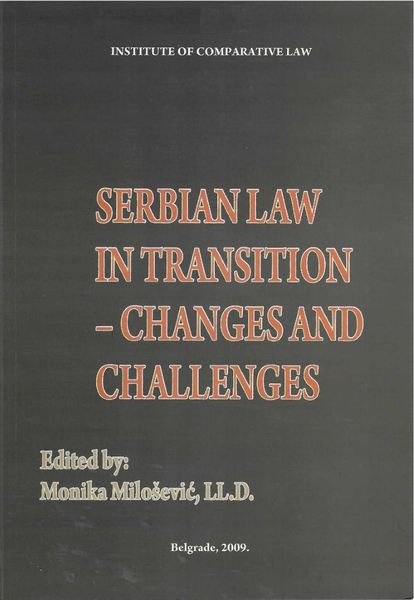
The Proceedings of reorganization of the Bankruptcy Debtor represent a new start in this matter. After applying such proceedings, the Bankruptcy Debtor can continue his/her activities. The Reorganization Plan is the basic document of that Reorganization. The Bankruptcy Proceedings Act of the Republic of Serbia regulates many forms of Reorganization. Some of them are the main part of the Plan and include all possibilities for the continuation of the work of the Bankruptcy Debtor as well as solutions for payment of the Creditors' claims. Some of these forms include: keeping of all property of the Bankruptcy Debtor, sale of his/her property or transfer of the property for the settlement of the Creditors, closing some of the departments of the Bankruptcy Debtor or the change of Debtor’s activities, etc. As a rule, the Reorganization Plan consists of several forms of Reorganization. The Creditors decide on the Reorganization Plan, but the application of the Plan depends also on the status of the Bankruptcy Debtor.
More...